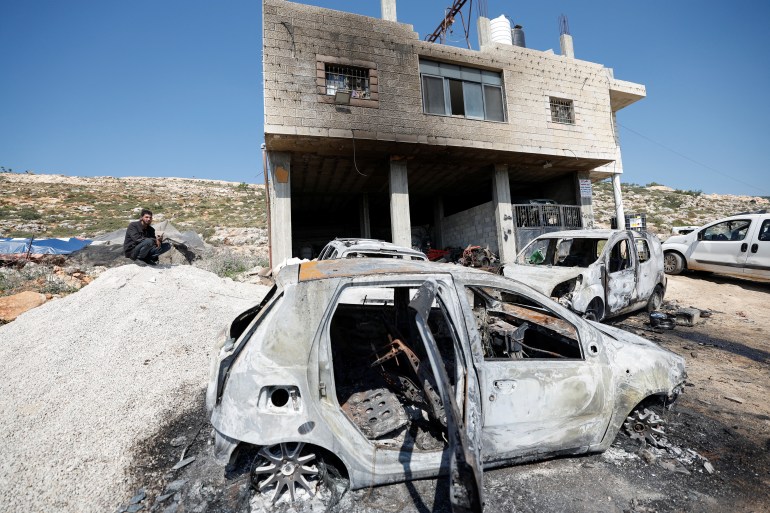Amhara militia members walk along a road in near the village of Adi Arkay, Ethiopia, July 14.
Photo: eduardo soteras/Agence France-Presse/Getty Images
Preoccupied by the pandemic, climate change and the intensifying rivalry between the U.S. and China, policy makers and pundits aren’t paying enough attention to the news in Africa. That is a mistake. What is happening on the continent offers insights into the destructive role identity politics seems destined to play in world politics.
While every African country has its own history and culture, a common trait to many is the presence of dozens of ethnic and language groups with proud histories and strong identities. When independence came, these new states kept their colonial borders. Most felt that once boundaries are up for grabs, endless claims and counterclaims easily can lead to endless wars. Tribalism was widely condemned as primitive and atavistic, and the assumption was that a developing Africa would leave all that behind and form modern national identities.
That assumption turned out to be wrong. Instead of fading away, in many countries separatist movements are gaining strength and central governments are failing. It is more than the old tribes. Islam and Christianity have exploded across the postcolonial continent. Traditional ethnic identities and rivalries often get pulled into the framework of a Christian-Muslim conflict. In Nigeria this antipathy has led to tens of thousands of deaths and there is no sign that the central government can quell the violence. And it isn’t the only postcolonial state failing to control this sort of religious-ethnic strife, as jihadists fan out across Africa, from the Sahel to northern Mozambique.
In South Africa the struggle against apartheid created one of the strongest multi-ethnic common identities in Africa. Yet this summer the country was shaken when mostly Zulu supporters of former president
Jacob Zuma
staged what some called an insurrection to protest his imprisonment on corruption charges.
Ethiopia’s Nobel Peace Prize-winning
Abiy Ahmed
launched a war against the Tigrayan regional government that has now become a civil war featuring genocidal massacres and ethnic cleansing reminiscent of post-Tito Yugoslavia. Eritrean forces have intervened in the Ethiopian civil war against the Tigrayans, who are hated in Eritrea for their hawkish stand during the long and bitter war for independence from Ethiopia.
Ethnic and religious conflict broke Sudan in two in 2011. The resulting new country, South Sudan, has been riven by new rounds of fighting since achieving independence. Thousands have been killed in combat between English speaking Ambazonians seeking independence in northwestern Cameroon and the country’s Francophone national government.
There was never much historical evidence to support the hope that economic development would strengthen Africa’s multi-ethnic polities. Economic and social progress often stoke identity politics and endanger the unity of multinational and multi-confessional states. Language differences, for example, matter more as education levels rise. Will your child be educated in his or her native language or forced to learn in the language of another nation—and will speakers of your local language have equal access to government and professional jobs?
This is what happened in Eastern and Central Europe in the late 19th and early 20th centuries. As education and economic development spread across the Austro-Hungarian, Ottoman and Russian empires, different national groups became more conscious of their ethnic and cultural differences—and more determined to control their own futures.
Identity wars and conflicts based on differences in ethnicity, culture, language or religion are, once ignited, the most powerful forces in human affairs. And these forces persist in nations of all levels of development. Having witnessed Brexit and heard calls for Catalan independence, we shouldn’t be surprised that African peoples also want to exit distant and dysfunctional multi-ethnic unions to control their own affairs.
Syria, Yemen, Iraq and Lebanon are ripping themselves apart across ethnic or confessional divides. Separatist movements among the Arab, Kurdish, Azeri and Balochi minorities haunt the slumbers of Iranian mullahs. From the western Balkans through Turkey and the Caucasus to the “stans” of Central Asia, ethnic and religious divides are worrying governments and challenging the status quo.
The revisionist nationalism of
Vladimir Putin’s
Russia, India’s turn toward Hindu nationalism, and China’s increasingly xenophobic Han nationalism show that identity politics is returning to center stage even in large states. The eurocrats of Brussels are also struggling to contain populist nationalist opposition to European Union edicts. Many Americans wonder whether a common U.S. identity is strong enough to contain the forces that threaten to splinter the country permanently into hostile racial, religious and ideological camps.
Alongside the return of great power competition, the eruption of identity politics is the single most consequential political feature of our time. This fateful combination does not bode well.
Journal Editorial Report: The week’s best and worst from Kim Strassel, Holman Jenkins Jr., and Dan Henninger. Images: Twitter/ScottGordonNBC5 AFP via Getty Images
The Wall Street Journal Interactive Edition


























